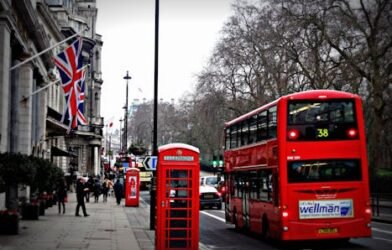Subtotal $0.00
“`html
Bus Driver Life in the UK at Night

Introduction to Night-Shift Bus Driving
For many, the image of a bus driver conjures up the hustle and bustle of a busy morning commute or the rush hour evening traffic. However, the life of a night-shift bus driver in the UK is a world apart—a unique rhythm that unfolds on dimly lit streets, with a different cast of passengers and a distinct set of challenges. From London’s iconic red buses to Manchester’s nocturnal routes, night bus drivers play a vital role in keeping the city moving while most of its inhabitants sleep.
The Night-Shift Routine
Night-shift bus drivers typically work from late evening until the early hours of the morning, often starting their shift around 10 PM and finishing by 6 AM. The routes they drive are usually quieter, but they serve a diverse range of passengers, from late-night shift workers to partygoers heading home after a night out. The timetables are less frequent than during the day, with some buses running only once an hour, requiring drivers to maintain strict schedules.
For many drivers, the night shift means adjusting their body clock. Some develop routines to stay alert, such as taking short breaks between routes, drinking coffee, or listening to music. Others rely on the quiet moments between stops to reflect and recharge.
Challenges of Driving at Night
- Reduced visibility: Night driving comes with the inherent challenge of poor lighting, especially on poorly lit roads or during adverse weather conditions.
- Unpredictable passengers: Night buses often carry a mix of tired workers, intoxicated individuals, and vulnerable people, requiring drivers to be vigilant and patient.
- Safety concerns: Drivers may face risks such as anti-social behavior or confrontations, making personal safety a priority.
- Fatigue: Staying awake and alert during the night can be physically and mentally draining, especially on long shifts.
Human Connections on the Night Bus
Despite the challenges, night-shift bus driving offers unique opportunities to connect with people. Drivers often become familiar faces to regular passengers, such as hospital workers, cleaners, and security guards who rely on night buses to get to and from work. These interactions can create a sense of camaraderie and purpose.
On the other hand, drivers also encounter vulnerable individuals, such as homeless people seeking shelter or those in distress. In such situations, drivers often go beyond their role, offering a kind word or helping passengers find assistance.
The Emotional Toll and Personal Rewards
Driving a bus at night can be emotionally taxing. The isolation of the late hours, combined with the stress of navigating challenging situations, can take a toll on mental health. However, many drivers find fulfillment in knowing they provide an essential service, ensuring that people can travel safely during the night.
For some, the night shift also offers a sense of freedom and tranquility, with quieter roads and the chance to witness the city in a different light—literally. The serene moments of driving through empty streets can be meditative and rewarding.
Conclusion: The Unsung Heroes of the Night
Night-shift bus drivers in the UK are the unsung heroes of urban life, keeping cities connected when most people are asleep. Their role is demanding, requiring resilience, empathy, and a commitment to safety. Yet, it is also a role filled with moments of connection, quiet reflection, and the satisfaction of serving the community. As the wheels of their buses roll through the night, these drivers remind us that the city never truly sleeps—and neither does their dedication.
“`
This article provides a comprehensive look at the life of night-shift bus drivers in the UK, blending practical details with human-interest elements. The use of HTML5 structure and placeholder images ensures it is visually engaging and easy to navigate.





